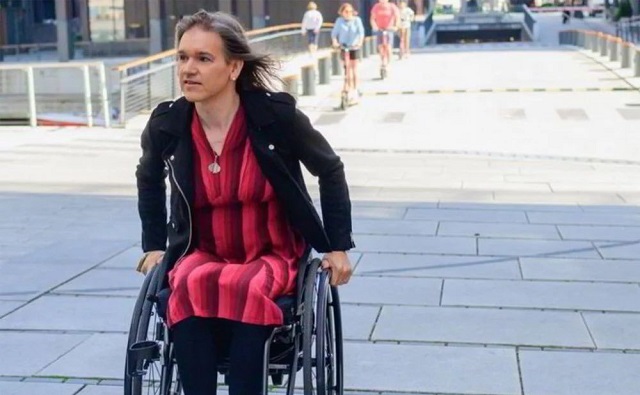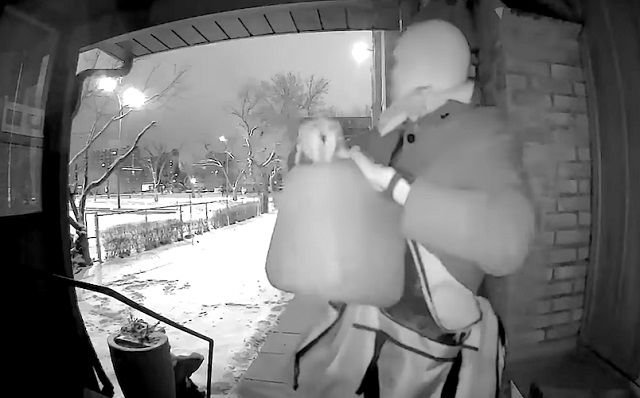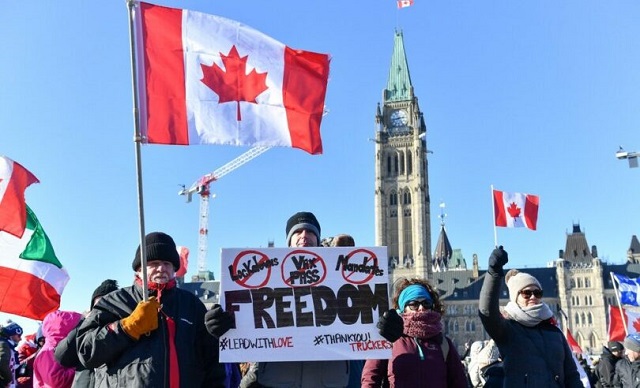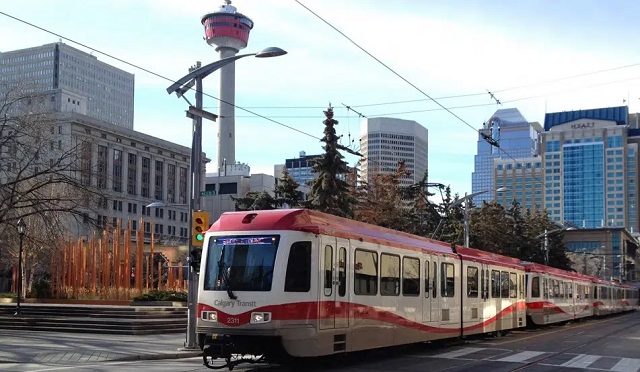Alberta
17 COVID-19 cases in Central Alberta, 301 in Alberta

From the Province of Alberta
Update 10: COVID-19 pandemic in Alberta (March 23 at 5:00 p.m.)
Forty-two additional cases of COVID-19 have been confirmed, bringing the total number of cases in the province to 301. Aggressive public health measures continue to help limit the spread of COVID-19.
Latest updates
- Cases have been identified in all zones across the province:
- 188 cases in the Calgary zone
- 68 cases in the Edmonton zone
- 19 cases in the North zone
- 17 cases in the Central zone
- Eight cases in the South zone
- Of these cases, 18 are currently hospitalized, seven have been admitted to intensive care units (ICU), and one patient has died. One case is unknown as the zone is being determined.
- The number of confirmed recovered cases remains at three. A longer-term process for determining timely reporting of recovered cases is underway.
- Aggregate data, showing cases by age range and zone, as well as by local geographical areas, is available online at alberta.ca/covid19statistics.
- Travellers who returned to Alberta after March 12 and have mild symptoms will no longer be tested for COVID-19. Instead, the same advice applied to all Albertans will apply to them – to self-isolate at home and away from others. This change is effective going forward, so anyone who has already been told by Health Link that they will be tested will still get tested.
- Testing will be prioritized for the following individuals, if they are symptomatic:
- People who are hospitalized with respiratory illness.
- Residents of continuing care and other similar facilities.
- People who returned from travelling abroad between March 8 and 12, before the self-isolation protocols were in place.
- Anyone with symptoms who does not fit any of these categories should stay home and self-isolate for a minimum of 10 days from the start of their symptoms, or until symptoms resolve, whichever is longer.
- Several people have contacted AHS to offer their help as health-care volunteers. Though the outpouring of support is appreciated, at this time volunteer resources will be reaching out to contact registered volunteers where needed. For more information, Alberta Health Services has guidelines in place online.
- A bonspiel event was held in Edmonton March 11 to 14, during which some physicians were exposed to COVID-19. We have determined that 11 of the 47 Alberta health-care workers who attended the event have now tested positive for COVID-19. Many of these are physicians. Some of these individuals worked early last week before notification came through of the case associated with the event, and all contacts are being notified as per usual local public health followup. More information will be communicated as details are confirmed.
- People not experiencing symptoms are being reminded that they can and should get outside, keeping in mind the importance of social distancing and restrictions on mass gatherings.
- Albertans should consider remaining close to their home communities and avoid driving long distances to participate in outdoor activities, particularly in mountain parks. Many of the services Albertans are used to having, like washrooms, rest stops and restaurants, are closed on Alberta highways, in parks and at tourist attractions.
- AHS has launched a new text-based service to give Albertans encouragement and ease feelings of stress or anxiety as they respond to recent challenges. Albertans can text COVID19Hope to 393939. In response, they will receive daily text messages on how to focus on healthy thinking or actions to help them manage their mood.
- All Albertans need to work together to overcome COVID-19. Albertans are asked to share acts of kindness they have experienced in their community during this difficult time by using the hashtag #AlbertaCares.
- To reinforce this message, government has released a video to encourage people to help prevent the spread.
WCB premium payment deferral
Small, medium and large private sector employers can defer WCB premiums until early 2021.
Employers who have already paid their WCB premium payment for 2020-21 are eligible for a rebate or credit.
For small and medium businesses, the government will cover 50 per cent of the premium when it is due.
Large employers will also receive a break by having their 2020 WCB premium payments deferred until early 2021, at which time their premiums will be due.
Service changes
Community and Social Services has suspended in-person service delivery in its program offices and Alberta Supports Centres. Albertans should contact 1-877-644-9992 for more information.
Support for homeless
To date, there have been no cases of COVID-19 reported at homeless shelters. Government is providing $25 million to support homeless-serving agencies respond to COVID-19. A number of supports are being offered throughout the province.
City of Edmonton
- The Edmonton EXPO Centre is being activated as an isolation and care centre.
- Hope Mission and The Mustard Seed will activate additional capacity to meet social distancing guidelines.
City of Calgary
- Isolation and care will operate out of hotel rooms.
- Alpha House, the Calgary Drop-In Centre, The Mustard Seed and Inn from the Cold will activate additional spaces to meet social distancing guidelines.
City of Red Deer
- Safe Harbour Society has relocated to accommodate an additional 100 spaces.
Additional capacity and isolation centres for Lethbridge, Red Deer and Grande Prairie are being confirmed.
Fort McMurray and Medicine Hat have shelter capacity to implement social distancing recommendations. The Government of Alberta will continue to monitor the situation in those communities.
Access to Justice
The Alberta Court of Queen’s Bench has suspended booking any new non-emergency or non-urgent matters until May 1.
Alberta Court of Queen’s Bench information: https://www.albertacourts.ca/qb/resources/announcements/covid-19-extension-of-suspension-of-sittings
Seniors facilities limiting visitation
Seniors facilities are receiving social isolation and distancing information, and stronger restrictions are being put in place for visitors to long-term and seniors care facilities. Essential visitors will be restricted to a single individual who can be family, a friend, or a paid companion who provides care and companionship necessary for the well-being of the resident (physical and mental health) and/or a single designated visitor for a person who is dying, as long as only one visitor enters the facility at a time. Every visitor will undergo a health screening.
Offers of help
The Alberta Emergency Management Agency Unsolicited Offers Program has been set up in response to growing offers of generosity from individuals and organizations to help with the challenges many Albertans are facing due to the COVID-19 pandemic. Those wanting to help can go to alberta.ca/COVID19offersprogram for more information.
General information for citizens
The Alberta Connects Contact Centre is available seven days a week, from 8 a.m. to 8 p.m.
Albertans can call toll-free from anywhere in the province by dialling 310-4455 for general information about the Government of Alberta and its response to COVID-19, or for help contacting individual program areas.
This line cannot provide medical advice. Anyone who has health concerns or is experiencing symptoms of COVID-19 should complete an online COVID-19 self-assessment.
Information for travellers
An official global travel advisory is in effect. Albertans should follow all travel recommendations.
- Avoid all non-essential travel outside Canada and all cruise ship travel.
- Canadians abroad should return home immediately.
- Returning travellers should:
- follow self-isolation guidelines and monitor for symptoms for 14 days
- check recent domestic and international flights for confirmed cases (information is updated as cases are confirmed)
More information can be found under travel advice at alberta.ca/COVID19.
The Alberta government and Travel Alberta have launched a campaign to inform Canadians travelling in the United States and Mexico about the importance of returning home.
COVID-19 related information has been provided for departing and returning passengers at the international airports in both Edmonton and Calgary. This information has also been shared with all airports in Alberta and several airlines.
Quick facts
- The most important measures that Albertans can take to prevent respiratory illnesses, including COVID-19, is to practise good hygiene.
- This includes cleaning your hands regularly for at least 20 seconds, avoiding touching your face, coughing or sneezing into your elbow or sleeve, disposing of tissues appropriately, and staying home and away from others if you are sick.
- Anyone who has health concerns or is experiencing symptoms of COVID-19 should complete an online COVID-19 self-assessment.
- For recommendations on protecting yourself and your community, visit alberta.ca/COVID19.
Alberta
Maxime Bernier says it’s ‘astounding’ Alberta is ‘pushing’ COVID boosters, tells Danielle Smith to stop it

From LifeSiteNews
The People’s Party of Canada leader tells the Alberta government: ‘It’s over! Get over it!’
People’s Party of Canada (PPC) leader Maxime Bernier said Alberta Premier Danielle Smith should tell provincial health bureaucrats to “back off” and stop “pushing” the mRNA COVID boosters on “anyone,” considering a recent announcement from health officials recommending yet more COVID shots.
“I find it astounding that Alberta public health bureaucrats are still pushing the mRNA boosters on anyone, and especially on children who have never been at risk, almost two years after almost all other pandemic measures have been ended,” Bernier told LifeSiteNews.
“Danielle Smith’s government should tell its bureaucrats to back off and stop stupidly feeding a needless sense of fear surrounding the virus that lingers among certain groups of society. It’s over! Get over it!”
Earlier this week, officials from Alberta Health Services (AHS), whose chief medical officer throughout the COVID crisis, Dr. Deena Hinshaw, was fired by Smith in 2022, updated its COVID booster recommendations to every “three months” starting at babies only six months old.
“Starting April 15, 2024, select groups of Albertans at high risk of severe outcomes from COVID-19 will be eligible for an additional dose,” the AHS noted on its website.
AHS health officials still assert that all “vaccines are safe, effective and save lives,” and that one can get a COVID shot at the same time as a flu vaccine.
On April 16, Bernier commented on the AHS’s new COVID jab guideline changes on X, in which he asked, “What’s going on in Alberta with their “conservative” government?
Bernier, who was a firm opponent of both the COVID shots and mandates, told LifeSiteNews that AHS’s recommendations are puzzling, given “more and more scientific evidence is emerging of dangerous side effects when injecting from these experimental substances.”
“Even though these are only recommendations, and nothing is mandated, this ‘guidance’ by government agencies influences people’s decisions,” Bernier said.
AHS claims that the booster shots “are anticipated to provide a good immune response against currently circulating strains.”
Those under 18 still need written or verbal consent from their parents to get the shot.
AHS is recommending booster jabs for seniors, healthcare workers as well as those with underlying medical conditions. They also recommend that First Nations people and “members of racialized and other equity-denied communities,” as well as pregnant women get the shots as well.
The COVID shots were heavily promoted by the federal government as well as all provincial governments in Canada, with the Alberta government under former Premier Jason Kenney being no exception.
The mRNA shots themselves have been linked to a multitude of negative and often severe side effects in children.
Danielle Smith took over from Kenney as leader of the United Conservative Party (UCP) on October 11, 2022, after winning the leadership. Kenney was ousted due to low approval ratings and for reneging on promises not to lock Alberta down as well as enacting a vaccine passport. Smith was opposed to COVID jab mandates.
Bernier: It’s ‘deplorable’ some provinces still mandate COVID shot for Heathcare workers
While Alberta does not mandate the COVID shots for healthcare workers anymore, British Columbia still does as well as some health regions in Ontario, a fact that Bernier called “deplorable.”
“I find it deplorable that nurses, doctors and other healthcare workers in B.C. and Ontario still have to be vaccinated to work in hospitals and that thousands of them have not been reintegrated,” Bernier told LifeSiteNews.
“The authoritarian covid measures adopted by all governments have been traumatic enough for millions of Canadians. All of them should be lifted.”
Last year, LifeSiteNews reported on how the details of the Canadian federal government’s COVID-19 vaccine contract with Pfizer for millions of doses of the mRNA-based experimental shots were recently disclosed after being hidden for over three years.
The contract with Pfizer shows the government agreed to accept the unknown long-term safety and efficacy of the shots. The details of the Pfizer contract do not disclose how much the government spent on the jabs.
A bill introduced by Conservative Party leader Pierre Poilievre that would have given Canadians back their “bodily autonomy” by banning future jab mandates was voted down last year after Trudeau’s Liberals and other parties rejected it.
Adverse effects from the first round of COVID shots have resulted in a growing number of Canadians filing for financial compensation over injuries from the jabs via the federal Vaccine Injury Program (VISP).
VISP has already paid well over $11 million to those injured by COVID injections.
Earlier this year, LifeSiteNews reported on how officials from Health Canada have admitted that there is “residual plasmid DNA” in the COVID shots after a Conservative MP asked the agency through an official information request if the DNA fragments were in the shots.
As for Bernier, earlier this month he called out Poilievre for dodging a question regarding Canada’s participation in the United Nations’ pro-abortion Paris Climate Agreement.
Throughout most of the COVID crisis, Canadians from coast to coast were faced with COVID mandates, including jab dictates, put in place by both the provincial and federal governments.
After much pushback, thanks to the Freedom Convoy, most provincial mandates were eliminated by the summer of 2022.
There are currently multiple ongoing class-action lawsuits filed by Canadians adversely affected by COVID mandates.
Alberta
Canada’s advantage as the world’s demand for plastic continues to grow

From the Canadian Energy Centre
By Will Gibson
‘The demand for plastics reflects how essential they are in our lives’
From the clothes on your back to the containers for household products to the pipes and insulation in your home, plastics are interwoven into the fabric of day-to-day life for most Canadians.
And that reliance is projected to grow both in Canada and around the world in the next three decades
The Global Plastics Outlook, published by the Paris-based Organization for Economic Co-operation and Development (OECD), forecasts the use of plastics globally will nearly triple by 2060, driven by economic and population growth.
The use of plastics is projected to double in OECD countries like Canada, the United States and European nations, but the largest increases will take place in Asia and Africa.
“The demand for plastics reflects how essential they are in our lives, whether it is packaging, textiles, building materials or medical equipment,” says Christa Seaman, vice-president, plastics with the Chemical Industry Association of Canada (CIAC), which represents Canada’s plastics producers.
She says as countries look to meet climate and sustainability goals, demand for plastic will grow.
“Plastics in the market today demonstrate their value to our society. Plastics are used to make critical components for solar panels and wind turbines. But they also can play a role in reducing weight in transportation or in ensuring goods that are transported have less weight in their packaging or in their products.”
Canada produces about $35 billion worth of plastic resin and plastic products per year, or over five per cent of Canadian manufacturing sales, according to a 2019 report published by the federal government.
Seaman says Canadian plastic producers have competitive advantages that position them to grow as demand rises at home and abroad. In Alberta, a key opportunity is the abundant supply of natural gas used to make plastic resin.
“As industry and consumer expectations shift for production to reduce emissions, Canada, and particularly Alberta, are extremely well placed to meet increased demand thanks to its supply of low-carbon feedstock. Going forward, production with less emissions is going to be important for companies,” Seaman says.
“You can see that with Dow Chemical’s decision to spend $8.8 billion on a net zero facility in Alberta.”
While modern life would not be possible without plastics, the CIAC says there needs to be better post-use management of plastic products including advanced recycling, or a so-called “circular economy” where plastics are seen as a resource or feedstock for new products, not a waste.
Some companies have already started making significant investments to generate recyclable plastics.
For example, Inter Pipeline Ltd.’s $4.3 billion Heartland Petrochemical Complex near Edmonton started operating in 2023. It produces a recyclable plastic called polypropylene from propane, with 65 per cent lower emissions than the global average thanks to the facility’s integrated design.
Achieving a circular economy – where 90 per cent of post-consumer plastic waste is diverted or recycled – would benefit Canada’s economy, according to the CIAC.
A Deloitte study, commissioned by Environment & Climate Change Canada, estimated diverting or reusing 90 per cent of post-consumer plastic waste by 2030 will save $500 million annually while creating 42,000 direct and indirect jobs. It would also cut Canada’s annual CO2 emissions by 1.8 megatonnes.
Right now, about 85 per cent of plastics end up in Canada’s landfills. To reach the 90 per cent diversion rate, Seaman says Canada must improve its infrastructure to collect and process the plastic waste currently being landfilled.
But she also says the industry rather than municipalities need to take responsibility for recycling plastic waste.
“This concept is referred to as extended producer responsibility. Municipalities have the responsibility for managing recycling within a waste management system. Given the competing costs and priorities, they don’t have the incentive to invest into recycling infrastructure when landfill space was the most cost-effective solution for them,” she says.
“Putting that responsibility on the producers who put the products on the market makes the most sense…The industry is adapting, and we hope government policy will recognize this opportunity for Canada to meet our climate goals while growing our economy.”
-

 Economy1 day ago
Economy1 day agoExtreme Weather and Climate Change
-

 International1 day ago
International1 day agoTelegram founder tells Tucker Carlson that US intel agents tried to spy on user messages
-

 Alberta2 days ago
Alberta2 days agoDanielle Smith warns arsonists who start wildfires in Alberta that they will be held accountable
-

 National2 days ago
National2 days agoCanada’s Governor General slammed for hosting partisan event promoting Trudeau’s ‘hate speech’ bill
-

 Business1 day ago
Business1 day agoNew capital gains hike won’t work as claimed but will harm the economy
-

 Business1 day ago
Business1 day agoCanada’s economy has stagnated despite Ottawa’s spin
-

 Opinion1 day ago
Opinion1 day agoTransgender ideology has enabled people to ‘identify’ as amputees
-

 Crime23 hours ago
Crime23 hours agoCanadian receives one-year jail sentence, lifetime firearms ban for setting church on fire






